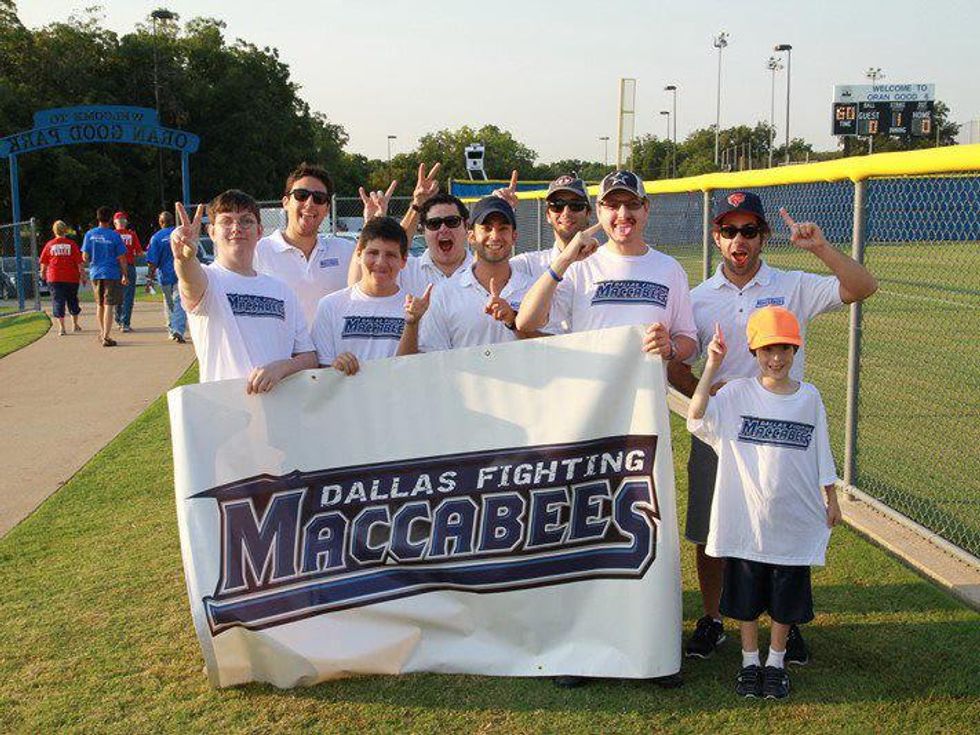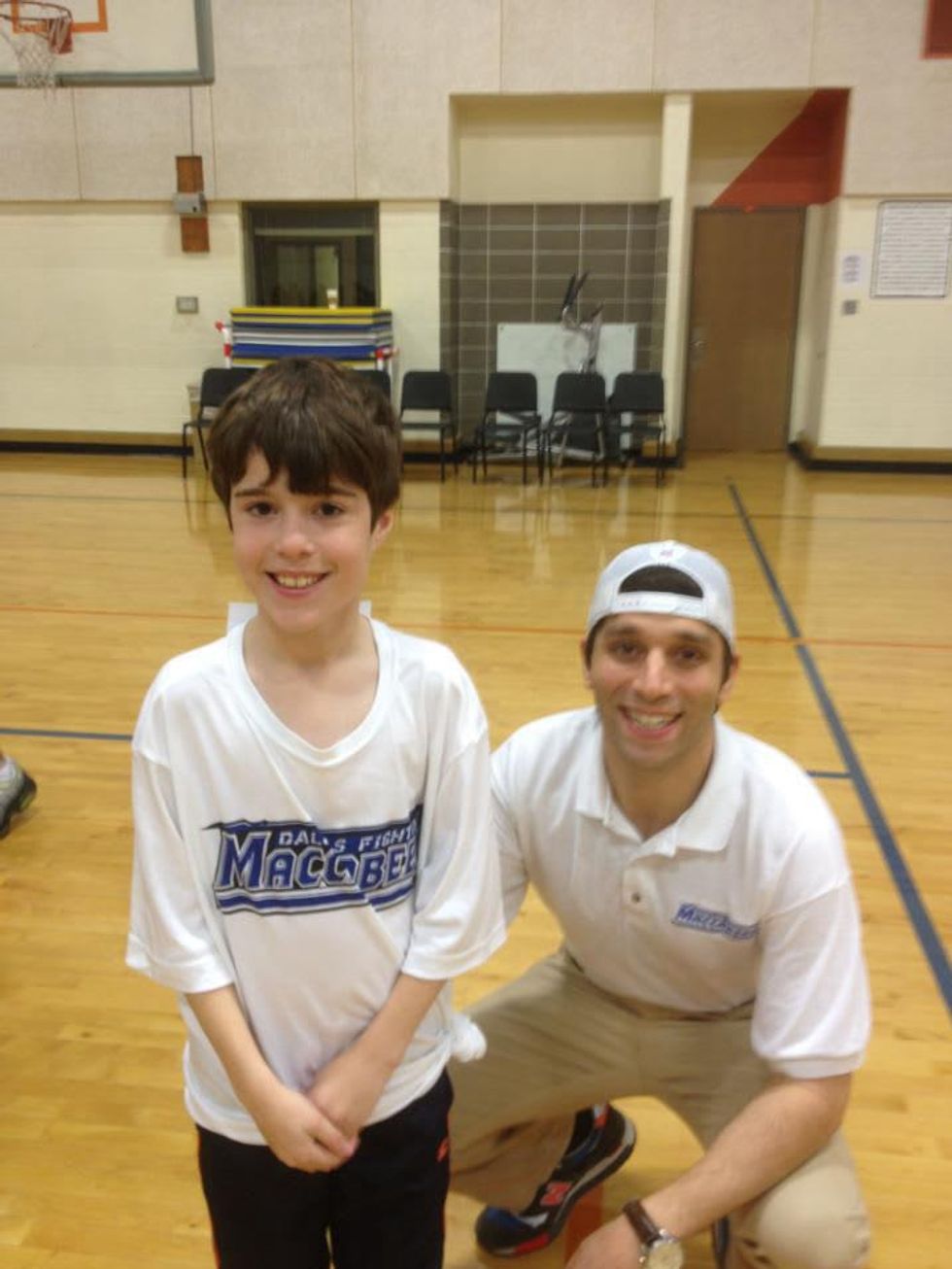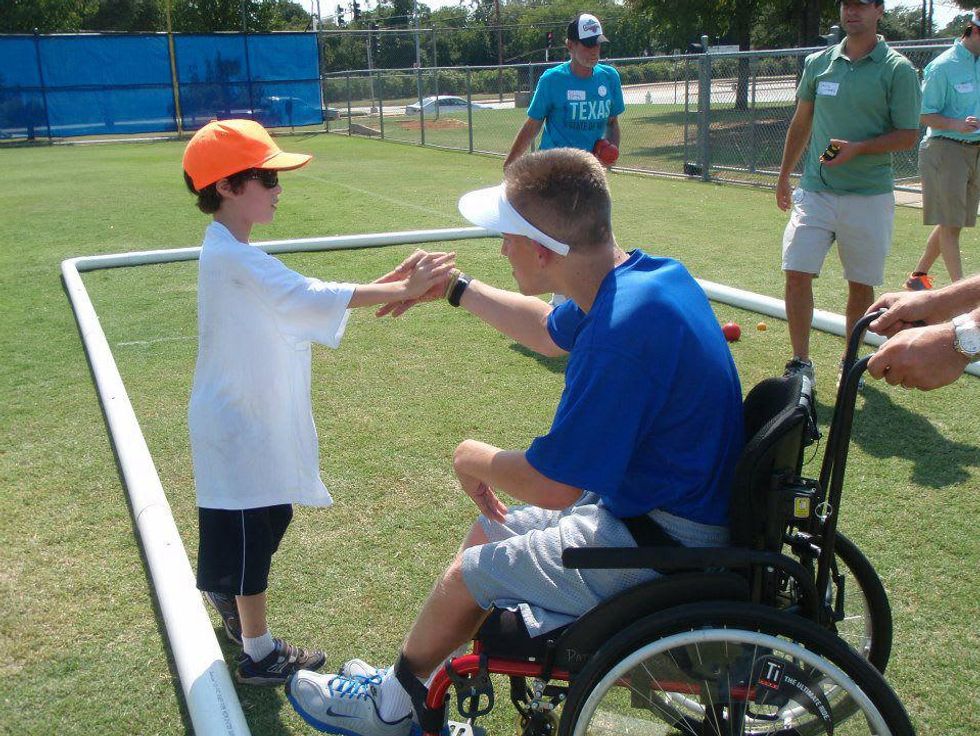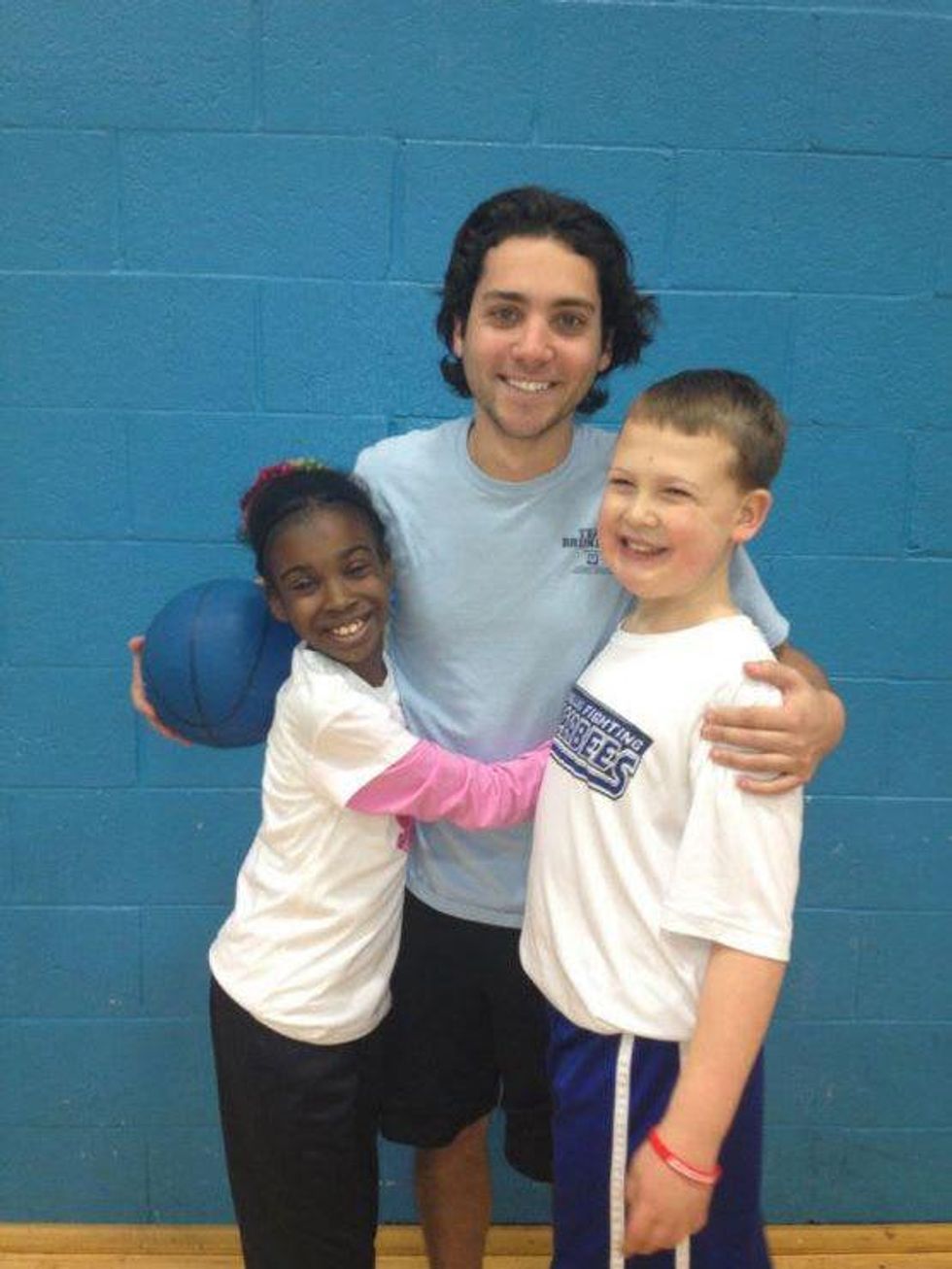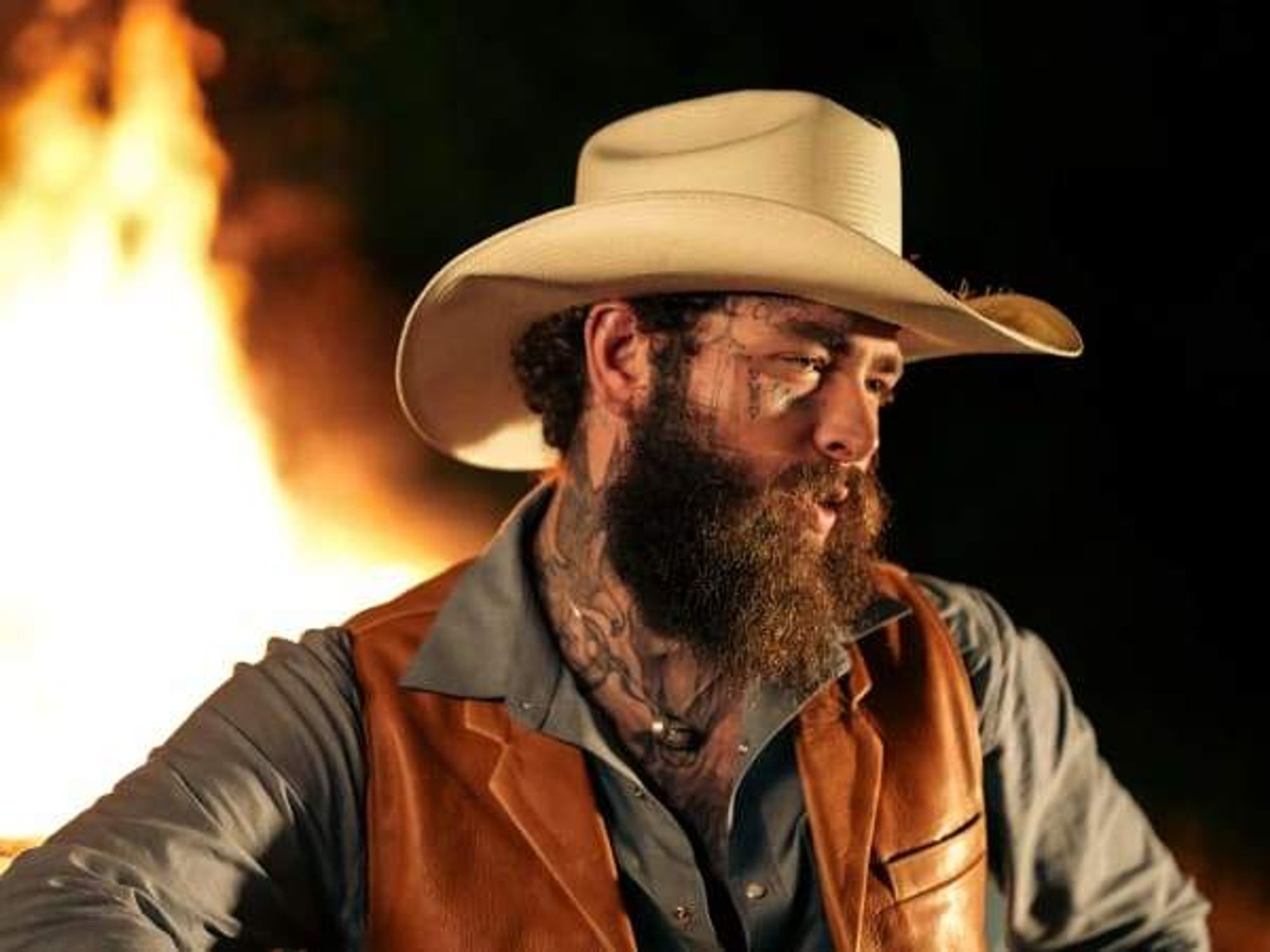Sports With Cause
Dallas Fighting Maccabees take special-needs kids to Olympics
The first time Jonathan Tobolowsky volunteered at a special needs basketball practice, he almost quit.
“It felt very awkward,” he says. “I didn’t have any family or friends with special needs, so I didn’t know what it was like. I was about to walk out of the gym during that first practice when one of the athletes, named Robby, came up and asked if I wanted to help him make a basket.”
Robby missed his first few shots, but during those attempts, he shared some advice the coaches had given him.
“The look on his face,” says Angela Weber, whose 10-year-old son is one of the athletes. “There’s no amount of money I wouldn’t pay to see that again.”
“He said that the coaches told him that as long as he tries and never gives up, he’ll make baskets,” Tobolowsky says.
Tobolowsky, 31, ended up coaching that basketball team for five years. In January 2012, he founded the Dallas Fighting Maccabees, a Jewish-based Special Olympics delegation devoted to helping athletes of all ages — and religious affiliations — find their sport.
“I was raised in the Jewish community,” he says. “At the JCC [Jewish Community Center], I went to just about all the camps and ended up coaching them as I grew up. I saw this as another opportunity to give back to my community.”
Since the Maccabees’ launch last year, the team has grown to include 14 athletes. The youngest is 9; the oldest is 36.
“It’s a nice marriage between physical and mental stimulation and social experience,” Tobolowsky says. “It gives kids a chance to socialize with peers and mentors.”
Angela Weber’s son, Samuel, nicknamed “Shmuli,” is one of the 14 athletes on the Maccabees. Shmuli has autism, and, at 10 years old, he is one of the youngest members.
“When Jonathan came to us with the idea for Maccabees, it was a long-answered prayer,” Weber says. “I love sports and felt bad that Samuel was missing out. He wasn’t equipped to play on a team because of his developmental delays.”
“I didn’t think there would be so many people wanting to give back to this cause,” says founder Jonathan Tobolowsky. “It’s been very humbling.”
Weber had put Shmuli in a few camps with children his age, but the results were mixed. Sports require communication and the ability to work with others, things that were difficult for him because of his autism.
But the Maccabees promised an environment designed to work with kids who need more attention and coaching. Weber initially thought that Shmuli would be better off playing in the individual Special Olympic basketball activities, but she decided to let the coaches decide. Even though Shmuli would probably be the youngest and smallest player on the court, Tobolowsky and the other coaches put him on the team.
In the Maccabees’ first game, the other team possessed a considerable size advantage and won the tipoff. They took the ball down the court and shot. The ball clanged off the rim and fell to Shmuli, who dribbled the length of the court, pulled up, and granny-shot from 20 feet. When the ball went through the basket, the whole place went nuts.
“The look on his face,” Weber says. “There’s no amount of money I wouldn’t pay to see that again. It was a real ‘Oh my God!’ moment.”
“Angela asked me if I saw his face,” Tobolowsky says, “and I told her that she should have seen her face. She almost fell out of her chair.”
Right now, Tobolowsky says they have more volunteers than they know what to do with. There are at least two for every athlete, ensuring that everyone gets attention. In fact, there’s a waiting list for volunteers until more athletes join.
“It takes a lot of patience, a lot of repetition,” he says. “Kids generally have short attention spans, and when you couple that with their needs, it just means there’s more work.”
Weber says she’s been amazed that so many twenty- and thirtysomethings volunteer to spend their weekends coaching the Maccabees. Tobolowsky says that the turnout surprised him too.
“I didn’t think there would be so many people wanting to give back to this cause,” he says. “It’s been very humbling.”
Weber says that Shmuli’s growth has been incredible since joining the Maccabees.
“His confidence has grown so much,” she says. “Being around all these smart 25- to 35-year-old guys really gets him to ‘man up’ for them. And he’s begun to play basketball at school and interact, [whereas] before he used to stay on the edges and stick to himself.”
Tobolowsky says the Maccabees are always welcoming new athletes whenever they and their parents feel ready to join. The Special Olympics takes a break in the summer, but Tobolowsky’s other organization, Jewish Special Athletics Club — designed for community outreach, programming and networking — is hosting events this summer at the JCC.
“We just finished track and field,” he says. “Within the next month or two, we will have a field day at the J. Shortly after that we will host a farm day with a petting zoo.”
Weber says she hopes more families decide to join the Maccabees.
“There’s everything to gain and nothing to lose,” she says. “We have a kid who has a very rare chromosomal deletion and eats through a feeding tube, but she participates in everything she can. That’s beautiful. Why would you not do something like that? It’s one of the best things that’s happened to us.”
